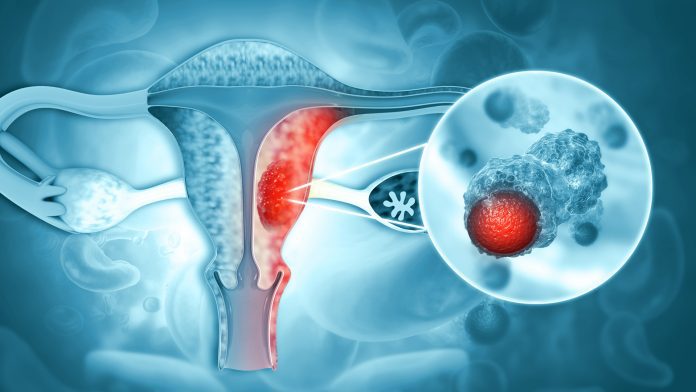
New research from the University of Bristol suggests that lifelong excess weight almost doubles the risk of developing womb cancer.
The University of Bristol study, which was funded by Cancer Research UK, discovered that for every five extra BMI units, a woman’s risk of womb cancer is increased by 88%, almost doubling. This is significantly higher than earlier studies have elucidated. Five BMI units are the difference between the overweight and obese categories, or of a 5’5 adults woman being two stone heavier.
The study findings are published in BMC Medicine.
Correlation between excess weight and womb cancer
Womb cancer is one of the prominent cancer types associated with obesity and is the most common gynaecological cancer in high-income countries. It is the fourth most common cancer among women in the UK, with one in 36 women being diagnosed with the disease during their lifetime.
Estimates show that nearly a third of all womb cancer cases in the UK are caused by being overweight or obese, the second-highest preventable cause of cancer in the UK. More than one in 2 cancer cases in the UK are caused by excess weight.
To investigate this association, the researchers analysed genetic samples from 120,000 women from Australia, Belgium, Germany, Poland, Sweden, the UK, and the USA – 13,000 women had womb cancer. The study is the first to examine the impacts of lifelong greater BMI on the risk of womb cancer.
The team investigated markers of 14 traits that could link obesity and womb cancer, identifying two hormones – fasting insulin and testosterone – that increased the risk of developing womb cancer. The scientists believe that this discovery could help identify drugs that can lower or raise the levels of these hormones. For example, metformin, a drug used to treat diabetes, can reduce the levels of hormones and may also affect cancer risk, although more research is needed.
Emma Hazelwood, the lead author of the study, said: “This study is an interesting first step into how genetic analyses could be used to uncover exactly how obesity causes cancer and what can be done to tackle it. Links between obesity and womb cancer are well-known, but this is one of the largest studies which has looked into exactly why that is on a molecular level. We look forward to furthering research exploring how we can now use this information to help reduce the risk of cancer in people struggling with obesity.”
Dr Julie Sharp, head of health information at Cancer Research UK, said: “Cancer Research UK has been leading the way in uncovering links between obesity and cancer for years. Studies like this bolster the fact that being overweight or obese is the second biggest cause of cancer in the UK and can help us start to pinpoint why. This will play a pivotal role in uncovering how to prevent and treat cancer in the future.
“More research is needed to investigate exactly which treatments and drugs could be used to manage cancer risk among people struggling with obesity. We already know that being overweight or obese increases your risk of developing 13 different types of cancer. To reduce your cancer risk, it’s important to maintain a healthy weight by eating a balanced diet and staying active.”
Case study
Kath first experienced bleeding in 2013, which she attributed to the menopause at the time. However, just before Christmas that year, she had a heavy bleed that prompted her to visit a doctor. In January 2014, she was referred for a biopsy to Royal Bolton Hospital, where she was diagnosed with womb cancer.
Kath said: “When you hear the word cancer, your mind runs riot, and I was thinking: Am I going to live to see my grandchildren grow up? I felt sick as I didn’t know what was going on. It was as though I was in a dream. I was devastated when I found out and cried with my husband holding my hand.”
Kath caught her cancer at the earliest stage, meaning she could have life-saving surgery in which her ovaries and cervix were removed. The operation was successful, and she did not require any radiotherapy or chemotherapy and is now cancer-free.
Kath commented: “After finishing my treatment, I wanted to make some changes. We don’t know what caused my cancer, but I have to admit that I was carrying a few extra pounds. So now I exercise and eat better to be healthier. I also wanted to be a role model for my family.”
Each year, Kath now takes part in Cancer Research UK’s Race For Life, raising money and awareness for cancer.
She concluded: ” Reading some of the words on people’s backs about why they were running brought it all back to me about how important this is. It’s worrying to see that womb cancer rates are on the rise, and although weight isn’t the only risk factor, I want to encourage other women to live healthily so that fewer women go through what I went through. I hope that my story helps others make a change in their life.”









